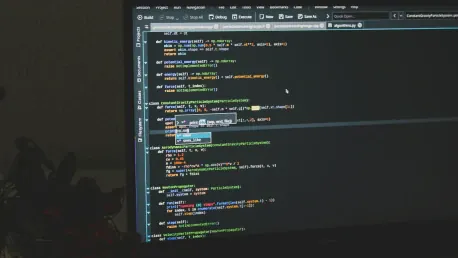In recent years, the rapid adoption of AI technologies, particularly generative AI tools, has led to a significant increase in coding automation within startups. Automation aims to enhance efficiency, productivity, and innovation by taking over repetitive coding tasks, allowing software developers to focus on more high-value activities. This transformation is evident across several industries, including e-commerce, fintech, SaaS, and AI, as startups integrate AI tools into their development workflows to varying degrees, achieving remarkable improvements in their operations.
Integrating AI Tools in Development Workflows
Automation Levels and Ambitions
The integration of AI-powered tools in software development workflows has become a strategic priority for startups. A considerable number of startups currently exhibit automation levels that range anywhere from 15% to 50%. However, by the end of this year, these companies are looking to elevate these automation levels to between 40% and 85%. For instance, InMobi has managed to automate 50% of its software coding workflows, demonstrating the potential of AI to transform operational efficiency. Similarly, Udaan has automated an impressive 90% of its front-end development, showcasing the high adaptability and enhancement AI technologies can bring to development processes.
Significant progress is also evident in companies like Gupshup, which is aiming to boost its automation from 35% to over 70%. LeadSquared and CoRover are among those making considerable strides, integrating generative AI throughout their development lifecycles and targeting higher automation percentages. Common themes among these initiatives include early-stage testing, development of reusable code components, and expanding AI-assisted tools. The results are tangible, with improved code quality and reduced coding time, as reported by Freshworks and Gnani AI.
Case Studies of Successful Automation
Detailed examples highlight the transformative effects of AI on running a startup. Freshworks has reported significant reductions in the time required to write code. This has allowed them to roll out new features more quickly and respond to customer needs more rapidly, thus gaining a competitive edge. Another success story is Gnani AI, which has used AI tools to markedly enhance the quality of its code. By leveraging AI, the company ensures fewer bugs and higher overall system stability, which ultimately leads to a better end-user experience.
LeadSquared and CoRover have successfully integrated generative AI throughout their development lifecycle, focusing on enabling smarter, more efficient coding practices. By adopting these advanced tools, they have reduced the bottlenecks typically associated with manual coding processes. The automation allows their developers to concentrate more on strategic tasks and creative problem-solving, leading to innovative solutions and improved user experiences. This approach underscores the importance of combining AI-driven automation with skilled human expertise to push the boundaries of what startups can achieve.
Balancing AI Automation with Human Expertise
Human Talent Remains Crucial
While the push towards automation is undeniable, startups emphasize that human talent remains essential. The goal is not to replace developers but to eliminate low-value, repetitive tasks, thus redirecting engineering efforts toward more critical thinking, optimization of user experiences, and improving system efficiencies. This ensures the workforce can engage in higher-value tasks and contribute significantly to the innovation and strategic direction of the company.
Recognizing the limitations of AI, especially in nuanced and complex designs, companies invest in reskilling developers for roles that demand deeper technical expertise. Developers are being trained in emerging fields such as AI ethics and model training to ensure they can handle sophisticated AI interactions responsibly. This approach fosters a collaborative environment where AI and human expertise work hand-in-hand, driving sustainable growth and innovation.
Reskilling for Emerging Technologies
The process of reskilling developers for new, complex roles is seen as a vital component in the effective integration of AI technology. Training programs are tailored to equip developers with the required skills in AI ethics and model training to handle AI technologies responsibly and effectively. By focusing on such programs, companies ensure their workforce remains adaptive and proficient in emerging technologies, which is crucial for maintaining a competitive edge.
Furthermore, companies emphasize the importance of human insight in developing and refining AI systems. AI technologies, while powerful, often lack the ability to understand the subtleties of design and user experience that humans inherently possess. Through continuous investment in reskilling, startups aim to create a symbiotic relationship between human developers and AI tools, ensuring that innovation does not come at the expense of quality and ethical considerations.
A Future-Ready Startup Ecosystem
Unified Transformation Approach
The incorporation of AI-driven automation has proven to be a transformative force within the startup ecosystem, bringing unprecedented efficiency gains. Startups recognize the necessity of integrating AI in a manner that augments human capabilities, rather than displacing them. This approach ensures a collaborative environment where humans and AI collectively contribute to sustainable and innovative growth. By balancing automation with human expertise, companies can unlock new levels of productivity and innovation, setting a strong foundation for future advancements.
Sustainable and Innovative Growth
In recent years, the swift adoption of AI technologies, especially generative AI tools, has spurred a notable rise in coding automation within startups. The primary goal of automation is to boost efficiency, productivity, and innovation by taking over monotonous coding tasks. This enables software developers to dedicate their time to more high-value activities. This shift is prominently observed across various sectors, including e-commerce, fintech, SaaS, and AI. Startups are progressively integrating AI tools into their development workflows, leading to significant improvements in operations. These improvements range from faster development cycles to enhanced decision-making processes, ultimately allowing startups to remain competitive and agile in a fast-paced market. The impact of AI on automation is profound, driving startups to innovate and adapt continuously. As AI technology advances, its role is expected to grow, potentially reshaping the landscape of software development and startup culture even further.









